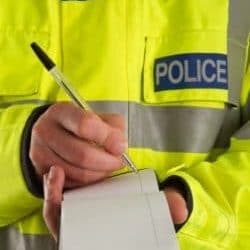
Police: Breathalysed solicitor
The Solicitors Regulation Authority (SRA) has handed out a £10,000 fine – reduced from £16,000 due to co-operation – to a solicitor convicted of drink driving, an unusually high figure for the offence.
Most cases of this nature attract fines of in the region of £2,000 but the regulator said that Piers King was reckless in driving when he knew he was over the limit.
Mr King is an associate at well-known London firm Farrer & Co and the figure was calculated as a percentage of his salary.
This is one of the first occasions that the SRA’s new fines guidance – which came into force in May 2023 and is linked to salary – has been detailed in relation to an individual.
A regulatory settlement agreement published last week said that, last February, after attending a rugby match, Mr King went to drive two miles back to his parents’ house. While turning a corner, he lost control of the vehicle and ended up on the verge of the road.
He was breathalysed and in April pleaded guilty to drink driving at Bath Magistrates’ Court. He was disqualified from driving for 22 months, fined £1,348 and ordered to pay a victim surcharge of £539 and prosecution costs of £85.
Mr King admitted he had damaged public trust in the profession as a result.
The SRA and Mr King agreed that a fine was appropriate “because a less serious sanction would not deter Mr King and others from similar behaviour in future”, the agreement said.
The nature of the misconduct was “more serious”, it added, “because Mr King intentionally decided to drive whilst under the influence of alcohol. This was reckless”.
They scored the nature and impact of the misconduct at three (more serious) and four (medium impact) – the highest combined score can be nine – indicating a broad penalty bracket of 16-49% of Mr King’s annual gross income.
The SRA acknowledged the solicitor’s mitigation: that he had “shown insight and remorse” and pleaded guilty at the first opportunity, promptly reported the matter to the SRA and co-operated fully with its investigation, and “no harm was caused to persons or property because of Mr King’s conduct”. Further, it was an isolated incident.
This had to be balanced against Mr King “having a high level of alcohol in his breath, which demonstrated a reckless disregard as to the risk of harm that could have been caused to others”.
This meant a basic penalty of £16,842, which is at the bottom of the bracket, discounted by 40% to £10,105 to reflect his co-operation.












No question this guy is v foolish, but receiving a huge additional penalty seems disproportionate?
Other institutions should now be looking to penalise him, perhaps his local Rotary Club?